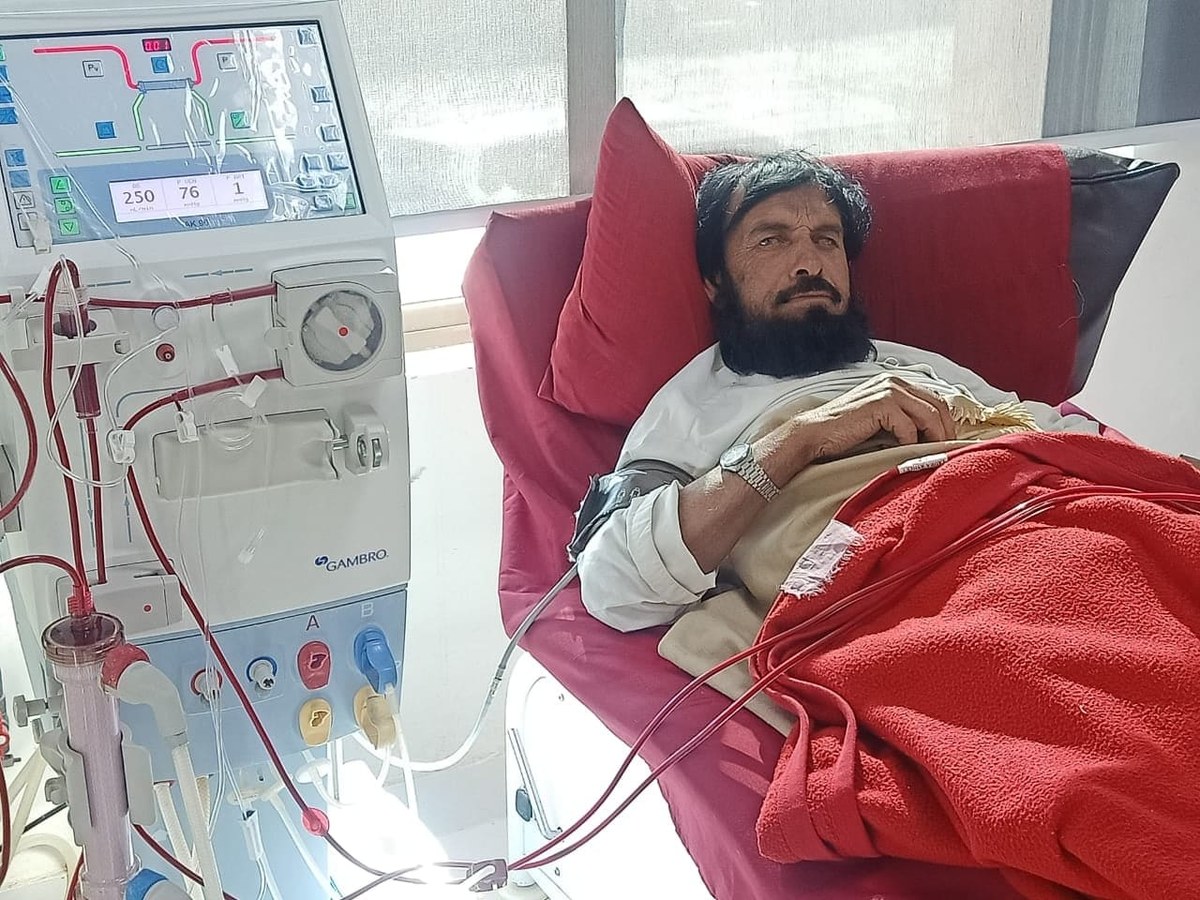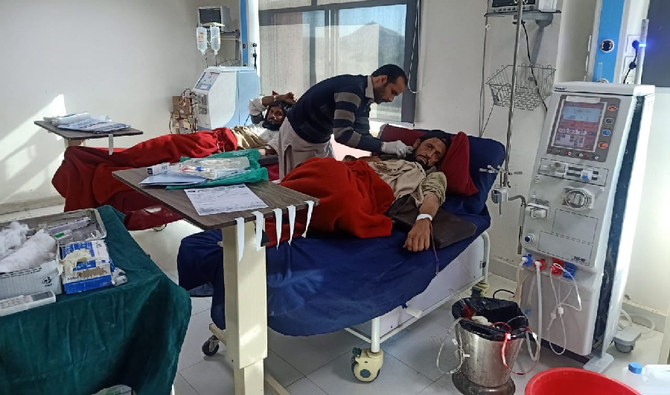TANK, KHYBER PAKHTUNKHWA: UAE-funded Sheikha Fatima bint Mubarak Hospital in Wana, South Waziristan district, has been providing advanced health care services that save many patients in the border region from poverty due to out-of-pocket medical expenses.
Inaugurated in July 2016, the hospital which covers 4,330 square meters is located in Sholam, a hamlet on the outskirts of Wana, in the tribal district that in 2017 was merged with Khyber Pakhtunkhwa.
“It is a 40-bed D-type or secondary health care facility, having specialized units such as medical, surgical, nephrology, dialysis, pediatrics, eye and dental departments,” Dr. Sohail Jan, the hospital’s chief operating officer, told Arab News.

A woman heads toward Fatima bint Mubarak Hospital in Wana, South Waziristan, Nov. 15, 2019. (Photo courtesy: Sheikha Fatima bint Mubarak Hospital)
“Dialysis and emergency services are free of cost. Once admitted to the hospital, patients get free medicine,” he added.
Kidney patient Asma Mehsud is one of those whose families used to spend fortunes making hundreds of kilometers to receive dialysis before the hospital was opened.
“We had spent everything we had in cash on my daughter’s treatment in Multan and Peshawar for dialysis. Now we get the facility at home,” Mehsud’s mother told Arab News.
The well-equipped hospital, named after Sheikha Fatima, wife of UAE founder Sheikh Zayed bin Sultan Al-Nahyan, was built following a decision by Abu Dhabi Crown Prince Mohammed bin Zayed Al-Nahyan and UAE President Khalifa bin Zayed bin Sultan Al-Nahyan. Its establishment and facilities cost $5 million.
Then Pakistan Army Chief Gen. Raheel Sharif inaugurated the hospital with Abdullah Khalifa Al Ghafli, director of the United Arab Emirates Pakistan Assistance Program.
Another kidney patient, Sayed Wali, said the hospital was “a matchless gift and favor by the UAE” to the helpless people of “this neglected part of the country.”
“Patients in South Waziristan tribal district with serious ailments used to travel hundreds of miles for medical treatment. This favor by the UAE will be remembered for generations. It offers treatment even for complicated diseases,” he said.
Sher Ali, also the hospital’s patient, told Arab News he needs dialysis once a week.
“Earlier, I had to go either to Dera Ismail Khan or Peshawar, or Multan, which was nearly impossible for me to afford. Now, it costs me Rs50 to pay for a taxi to reach the hospital.”
Asmatullah Khan, whose sister was admitted to the hospital, recalled he used to treat her at hospitals in other districts, which was very expensive.
“This hospital has helped poor people save their hard-earned money because most of the patients cannot afford treatment in other districts of the country. Thanks to the UAE, now we get treatment of complicated diseases at home,” he said.

Sayed Wali, a kidney patient, lies on his bed at Fatima bint Mubarak Hospital in Wana, South Waziristan, Dec. 15, 2019. (AN photo)
Sheikha Fatima bint Mubarak Hospital has been operating under a public-private partnership between the directorate of health services for tribal districts and Trans-Continental Pharma Ltd., a Pakistani company registered with the Securities and Exchange Commission, according to Dr. Jan.
He added that the hospital is treating 85 dialysis patients and gives them Rs2,000 necessary Epogen injections free of charge.
The hospital has 105 staff and also serves 250 outpatients every day. Outpatients, however, are not entitled to free medicine. They have been calling on authorities to help subsidize also those who do have to be not admitted for overnight care.
As the number of patients seeking treatment is growing, additional facilities are also needed. The hospital’s human resources manager, Salahuddin Wazir, told Arab News it would be yet another great favor if the hospital was provided with a lab for computerized tomography (CT) scans and clinics to treat heart and psychiatric illness.
“The hospital should be provided with CT scan, cardiac department, MRI and a specialized psychiatric department, as most of the patients approached us having psychological and depression problems, because of a decade-long vicious cycle of terrorism that plagued the entire tribal belt,” Wazir said.
According to the 2017 census, the population of tribal districts is 5 million. In South Waziristan alone it is nearly 680,000.
















